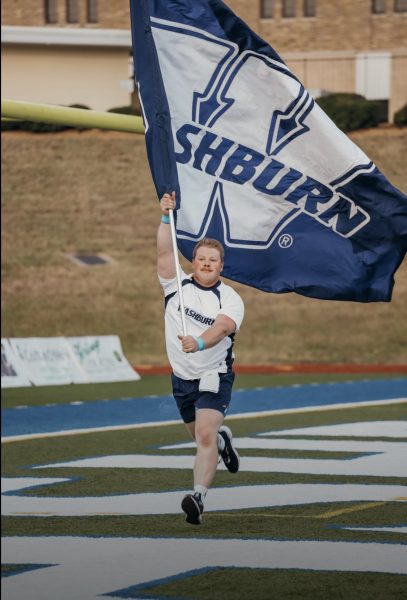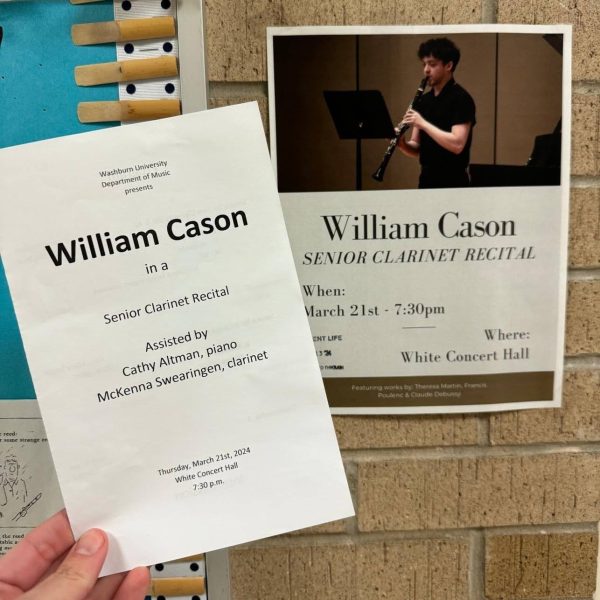International students adjust to a new life in the U.S.
Some international students encounter challenges when studying in a new country. Others have adjusted and thrived through the difficulties and have learned more about the world around them in the process.
While adjusting to a new life might be considered part of the college experience, international students face additional challenges they learn to overcome when studying at Washburn.
For some, the language barrier is one of the first differences they encounter.
“In Japan, we learn English, but only grammar and writing. We never practiced listening and speaking,” said Minami Isobe, junior psychology major. “This was a really big part of the adjustment process because I couldn’t understand what my friends were saying or what the professor was saying, so it was really hard.”
Isobe came to Washburn in 2019 from Chiba, a prefecture on the eastern side of Tokyo. Cultural differences both in and out of classrooms added extra hurdles that Isobe learned to get used to.
“The way we eat in Japan is totally different compared to here, and in the winter, I was really surprised that some people were wearing t-shirts,” Isobe said. “Although I’ve never been to college in Japan, I feel that students here at Washburn really talk more.”
Some cultures have similar social norms where students don’t speak, ask questions or address their teachers out of turn. These themes are shared between Japan and a country to its southwest, Nepal.
“In Nepal, we give a lot of respect to our teachers. I mean, they expect a lot of respect and attention from us,” said Nilam Dangi, presidential ambassador to international students and senior in finance and data analytics. “But over here in the U.S., I feel like teachers are really great, graceful and listen to their students. It’s a lot less strict compared to back in Nepal.”
Living far away from family might be an expected difficulty for some international students, but Isobe and Dangi have seemingly adjusted well to their new lifestyles abroad.
Isobe said that while she struggled the first time she’d ever been away from her family, she doesn’t feel homesick anymore – a sentiment that Dangi shared.
“Initially, it was really difficult. Not only was it difficult for me to leave, but it was also difficult for my family to leave me,” Dangi said. “But now, I don’t get homesick. I thought I would get homesick because I never left my family in 19 years, not even for a single night.”
Returning to their families might also bring challenges for some international students.
“I went to my home after two years, and honestly speaking, I couldn’t trust the streets,” Dangi said. “In Nepal, we don’t have a button where you could just press and walk across. It’s just random walking. I couldn’t do that anymore, even though I remember that I did this for 19 years of my life. I’ve adjusted to life here and I can’t adjust back.”
Isobe said that she initially struggled returning home over the summer because the style of clothing she wears in the U.S. is not appropriate back home.
“When I go to Japan, I don’t wear what I usually wear here,” Isobe said. “I have to cover certain amounts of skin, because I live more in the countryside. In Tokyo, maybe, but in the country, no.”
While both Isobe and Dangi regularly keep in touch with their families, either physically or through technology, there is one campus resource that makes them feel at home and cared for: the International House.
“When you come to college, you don’t know where to get your ID from, where you do your TB testing,” Dangi said. “The International House has been very helpful in that situation. And to make you feel at home, they have organized festivals, events that we used to celebrate back in our own countries. And they’re always there to help you out.”
Many international students had to return to their own countries during the beginning of the COVID-19 pandemic. Isobe said she found comfort in that difficult time from the contact she maintained with Heidi Staerkel, associate director of international programs at Washburn.
“During COVID, I had to go back to Japan,” Isobe said. “But even when I was home, Heidi always tried to help me and supported everything. She always responded to me very fast, which really helped me mentally.”
As they near their final years at Washburn, both Isobe and Dangi hope that others will learn from their experiences so future generations of international students can explore college and enjoy their time here.
“As an international student, I think you should definitely get out of your comfort space and try to gain as much experience as you can,” Dangi said. “It took about a year of time for me, but I’m really enjoying the friendliness that is present here.”
Isobe said that she hopes that students who are learning English can be brave and try their best to learn, since this challenge impacted her time at Washburn the most.
“Improving your English is really important to stepping out of your comfort zone, I think,” Isobe said. “I would say to not care too much about what other people are thinking. I thought people were going to judge me because I couldn’t speak English, I couldn’t understand what people were saying and I couldn’t understand lectures. Just go out, ask questions and try to talk to anybody you can.”
With international travel open for several countries and many restrictions lifted, both incoming and outgoing students have the opportunity to explore the world and who they are.
Edited by Justin Shepard, Alijah McCracken
Your donation will support the student journalists of Washburn University. Your contribution will allow us to purchase equipment and cover our annual website hosting costs.















